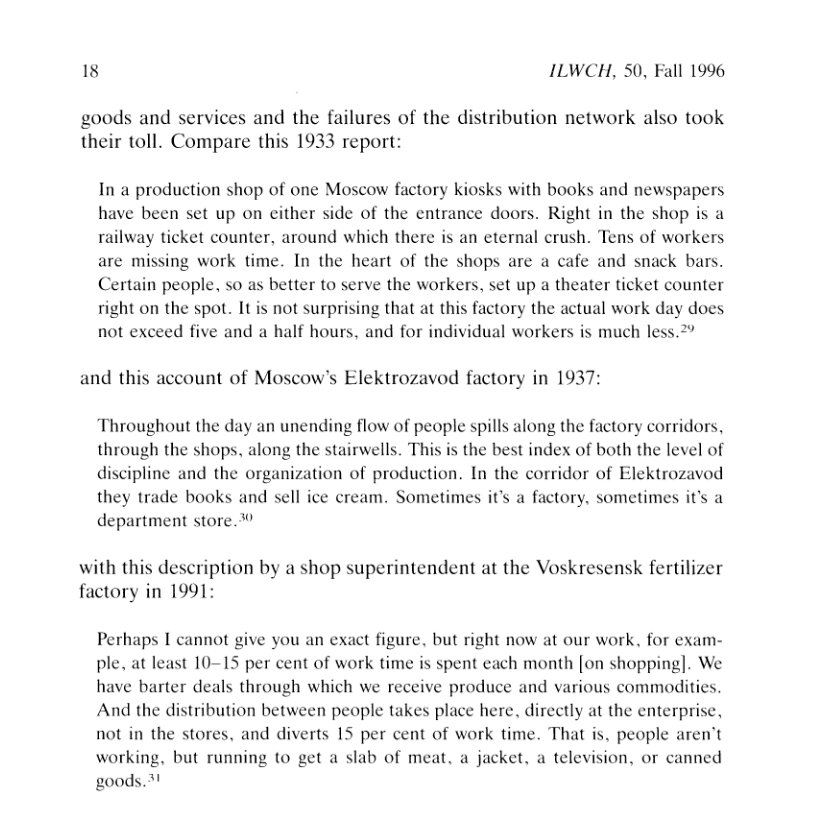I've always been fascinated by the idea that the Soviet workplace was a social and communal place. The US had some of that too, once, with canteens and factory papers, but I've heard of Soviet factories having their own sports facilities, health centers, clubs, all kinds of stuff that you just wouldn't find at an American workplace in the last few decades.
I've started reading 'Behind the Urals' and the one thing that struck me immediately is that, despite the described working conditions being pretty depressing and dangerous, everyone was just vibing? Everyone hung out together, chilled out to music, swapped stories about their lives and past homes, and even had energy after all of that to go off to night school to learn, driven by possibility to be anything they wanted.
You can be feeding people half of the rations they were promised, be unable to supply them all the tools they need for work, and have them sleep in barracks - but if they're working towards something tangible, both for themselves and for community, and in good company, their spirits will remain very high.
"The indomitable human spirit" and "A burden shared is a burden halved" and a couple of others. That's really cool.
looked up the guy who wrote behind the Urals
In later years he publicly advocated against Bolshevism. After his retirement in 1973, he served as vice president of Radio Free Europe/Radio Liberty[2] for several years
oh well, still sounds interesting
Chapotraphouse
Banned? DM Wmill to appeal.
No anti-nautilism posts. See: Eco-fascism Primer
Slop posts go in c/slop. Don't post low-hanging fruit here.
